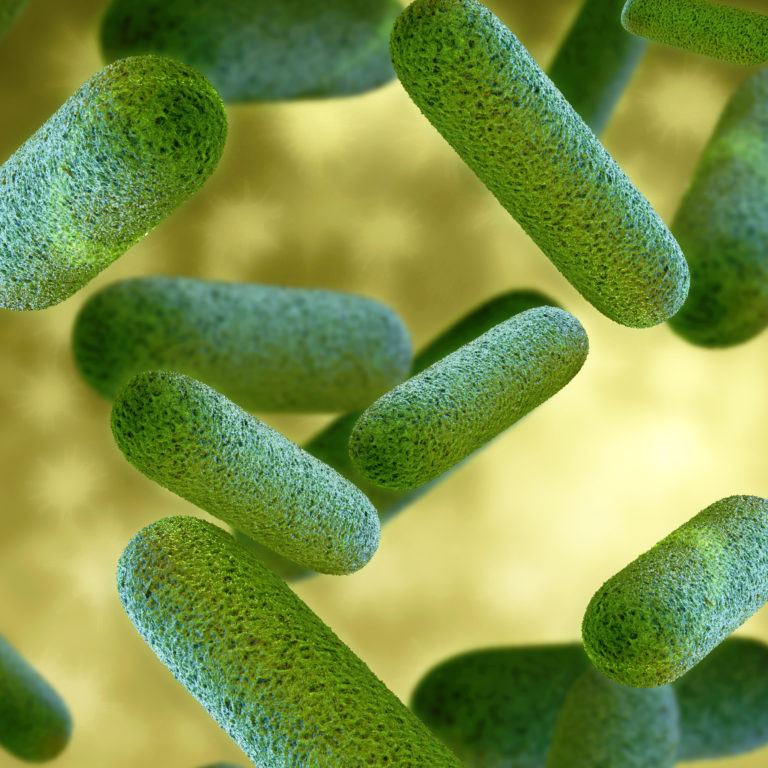Probiotics continue to grow in popularity as Baby Boomers and others look to natural remedies to improve digestive health.
For many of us searching for relief from digestive ills, it’s gut check time. From the Baby Boomer population becoming more focused on natural remedies to help maintain their digestive health, to parents looking for a way to supplement their children’s diet, probiotics are fast becoming the go-to choice to help obtain optimal health.And according to several market forecasts, the demand for probiotics isn’t likely to end any time soon.
In fact, the global probiotic market is expected to reach $23.93 billion by 2017, according to a recent report from MarketsandMarkets. According to the report, the probiotics market is expected to grow at a compound annual growth rate of 6.8 percent from 2012 to 2017.Consumer demand for these healthenhancing probiotic products include probiotic yogurts, other probiotic dairy products, and probiotic dietary supplements.
“Probiotics are essential, not just for digestive health, but for overall optimal health,” said Sharon McQuillan, MD, founder and medical director at The Ageless Aesthetic Institute in Aventura, FL. “Our gastrointestinal (GI) tracks are remarkable ecosystems in our bodies. The gastrointestinal flora in our GI tract is in constant competition for food and space in the intestines. In an ideal situation, the beneficial bacteria displace the pathogenic bacteria on the intestinal wall, resulting in good digestion, gut nutritional absorptions and enhanced immune function.Unfortunately, there are many challenges in today’s environment that make it easy for the pathogenic bacteria to take over.”
Probiotics are defined as “live microorganisms which, when administered in adequate amounts, confer a health benefit on the host.” The explosion of interest in both probiotics and prebiotics, according to Trisha Sugarek MacDonald, BS, MS, director of research and development and national educator for Bluebonnet Nutrition Corp., maker of Advanced Probiotics Acidophilus Plus FOS line of products, has resulted in a body of collective research that “point toward great promise.”
“Poor digestive health places a burden not only on an individual but also on the health care system,” said Sugarek MacDonald, citing a National Commission on Digestive Disorders 2009 report that 60 to 70 million Americans are affected each year by digestive diseases at a cost that exceeds $100 billion in direct medical expenses.“If pre- and probiotics can help us reduce even a portion of those costs, they are worth serious consideration.”
Balanced Bacteria
There are three types of bacteria found in the gut—good, bad and neutral. Probiotics are the good bacteria found naturally in a healthy digestive system. Having a good balance of bacteria is important for the immune system and overall health. Age, poor diet, stress, and certain medications can imbalance or deplete the body of billions of good bacteria, which can lead to digestive issues, according to Brenda Watson, founder and president of ReNew Life Formulas, which offers its Ultimate Flora probiotic line featuring delayed-release vegetable capsules. The gut is home to about 100 trillion bacteria cells—ten times the amount of cells that make up the entire human body. For this reason, high-dose probiotic therapy with a high-potency probiotic may have a greater impact on the beneficial modulation of gut flora.
“Probiotics are symbiotically intertwined with our gut, helping to restore digestive balance, so taking them on a daily basis is a great way to help build and maintain good digestive health,” said Watson.
But how does one go about selecting the right probiotic off the shelf at their favorite natural health store with so many to choose from?
“Probiotic supplements contain specific microorganisms that support digestive health in a host of ways,” said Chris Mohr, PhD, RD, a member of Nordic Naturals Advisory Board. “These include their roles producing digestive enzymes that help break down proteins, and improving the balance of naturally occurring intestinal flora. Another function that is less appreciated about probiotics is their support for health immunity.Products like Nordic Naturals’ Nordic Probiotic contain multiple strains of probiotic, which is important because research shows that different strains confer specific health benefits that add up to support for both upper and lower intestinal health.”
The Role of Prebiotics
Prebiotics are sugars designed to support the growth of beneficial bacterial strains and are often added to products to maximize their efficacy. Prebiotics do not necessarily confer specific health benefits in the same way that probiotics do, according to Mohr, but rather act as support ingredients that stimulate the growth of friendly bacteria in the gut.
“Emerging research suggests that certain prebiotics work best with certain strains of probiotics,” said Susan Hazels Mitmesser, PhD, director of nutrition research at American Health, one of the largest manufacturers of liquid and chewable probiotics in the United States, “but specific relationships are still being elucidated.”
“Prebiotics are generally non-digestible fibers that nurture the natural bacteria in the body,” added Dr. Gregory Leyer, chief scientific officer, UASLifeSciences, which offers the UP4 line of probiotics, including KIDS CUBES, a new chewable product. “These fibers help the growth of bacteria in the gut and the metabolites they make from prebiotics, like short chain fatty acids, are a preferential nutrient for the cells that line the large intestine. Prebiotics may also encourage probiotics to thrive and could be beneficial.” More and more evidence is showing the benefits of prebiotics, according to ReNew Life Formulas’ Watson. “By now, many people have heard of probiotics, but fewer people know about prebiotics.
Prebiotics are food ingredients that are not digestible by humans that specifically promote the growth of probiotics in the gut. They are essentially food for your beneficial gut bacteria and not unfriendly bacteria.” “Prebiotics are best known to resist digestion in the small intestine and reach the colon where they are fermented by the gut bacteria, thus providing beneficial effects throughout the GI,” added Bluebonnet’s Sugarek MacDonald.“ Numerous studies are providing insights into the growth and metabolic influence of these microbial nutrients on health. Today, the science behind the function of probiotics and prebiotics still requires more stringent deciphering both scientifically and mechanistically.”
Other Uses
There appears to be other areas of interest besides digestive disorders where probiotics and prebiotics are gaining traction and support for adding them to the diet. Implications for their use in the developing world for diarrheal diseases may be equally as important, according to Sugarek MacDonald, while there also seems to be preliminary support as intervention in conditions including inflammatory bowel disease, irritable bowel syndrome (IBS), allergy, cancer (especially colorectal cancer), vaginal and urinary tract infections in women, kidney stone disease, and mineral adsorption.
“The use of probiotics in the treatment of colon cancer, skin infections, and IBS is a natural progression in modern medicine,” said McQuillan. “Many of these conditions have an inflammatory component. Controlling the inflammatory response by balancing the microflora in the gut is a practical and natural way to improve these conditions without pharmaceutical side effects.
“There are many far-reaching benefits of probiotics other than just improved digestion and immune function. Scientists are discovering links between pathogenic bacteria and heart disease, diabetes, arthritis, Alzheimer’s disease, and obesity.”
While there are many potential new and exciting indications for probiotics and prebiotics, at ReNew Life the belief is that better health and immunity begins with a properly functioning digestive system, beginning in the mouth and ending in the colon.
“The body’s systems are affected by a person’s digestive health, so we are very focused on the ability of probiotics to keep the entire digestive tract in balance every day,” said ReNew Life’s Watson.“ Moreover, we are constantly monitoring the many studies that exist or are being done on various health benefits outside of gut health, like cholesterol, skin health, stress, urogenital health and more.
“We’re living in a very exciting time for probiotic research. More and more articles are being published on the gut microbiome and its effects on our health. We believe that these growing areas of bacterial research will reveal many more benefits of taking probiotics daily.”
Likely to benefit from the daily intake of probiotics are people from various age groups as the newest product offerings make the supplements easier to take and digest.
“Probiotics are good for both children and adults looking to support digestive and immune health and maintain intestinal balance,” said American Health’s Hazels Mitmesser. “Since so many of our body systems are impacted by the health of our ‘gut,’ keeping it continually populated with ‘good for you’ beneficial bacteria is an important step in supporting long-term wellness.”
Retailer Reaction
The growing popularity of probiotics can be witnessed first-hand upon walking through the doors at Zerbo’s Health Foods in Livonia, MI, where a large display area with a four-foot-high shelf is dedicated to a wide selection of probiotic products.
“We carry a large selection of probiotics,” said Sarah Boettcher, general manager of Zerbo’s Health Foods, which opened its doors in 1958. “We devote a lot of room in the store for them and they all move. We get a huge push from TV, especially when it’s something on Dr. Oz. I just think it’s a matter of the public being more in tune with supplementation.”
Boettcher offered that middle-age women seem to comprise the majority of her probiotic customers, many of whom are looking for relief from symptoms such as gas and bloating. However, they aren’t always sure just what item to pull off the shelf. That’s where Boettcher and her staff come into play.
“Mostly they know that they just don’t feel well and are looking for relief,” said Boettcher. “We ask them a lot of questions, what they are currently taking, and try to steer them in the right direction. They have questions, too, about probiotics and we help them as much as we can depending on what they came into the store for. Manufacturers (of probiotics) are also starting to do things like make age-specific products (adults, teens, kids) and that makes it easier for the customer to make choices.”
Rainbow Light, for example, offers Probiolicious Probiotic Gummies made with natural colors and flavors with no preservatives or artificial sweeteners.
Karen Lauchlan, assistant store manager at Better Health Market, has also seen an uptick in customer demand for probiotics at her store located in Novi, MI, part of a 13-store national chain.
“They just want to improve the quality of life and feel better,” Lauchlan said. “A lot of times they are fed up with taking (prescription) medications and not feeling better or having to take additional medications when those don’t work or have side effects. They want something to help them move forward.”
Lauchlan also stressed the importance of patient education, especially since her store carries a vast selection of probiotic products. She said thatproviding them with the knowledge they need allows them to make their own decisions.
“We believe strongly in education,” Lauchlan said. “There is a lot of confusion out there about probiotics with all the different kinds and what they do. We also sell a lot of enzymes and sometimes we have to explain the difference. We’re just trying to support what they are going through and steer them in the right direction.”
Choosing a Probiotic
When choosing a probiotic supplement, ReNew Life’s Watson said it is important to look for high CFUs—the number of live bacteria, or potency. And since multiple types of probiotics (called strains) are naturally occurring, it makes sense to look for a multiplestrain to mimic the natural diversity of a healthy gut.
Here is a small sampling of probiotic products available: Enzymedica, Inc. offers both Pro-Bio, which contains eight species of bacteria in the amount of 10 billion CFUs per capsule and Digest Gold + Probiotics, which offers the convenience of high potency digestive enzymes combined with delivery of active probiotic cultures.
Probiata Digestion Support and Probiata Critical Care from Wakunaga of America, a 100 percent pure-strain, high-potency probiotic. It is available in two potencies—15 billion CFUs and 50 billion CFUs. The company also offers its Kyo-Dophilus line of probiotics.
Probium, LCC has released 10 Strain Blend 50B (50 billion CFU) for digestive health and Oral Blis Combo 4B (4 billion CFU) to help oral health and hygiene.
Essential Formulas is promoting the power of probiotics in preventive health with Dr. Ohhira’s Probiotics, which is fermented using selected strains of lactic acid bacteria including the proprietary TH10 strain whose strength is said to be six times stronger than any other know LAB strain.
Lallemand Health Solutions has expanded its portfolio of probiotic offerings with the launch of Oral Health solutions, which combines proprietary documented probiotic strains and adapted dosage forms and formulation capabilities to design custom oral health solutions to maintain the oral microflora balance and support oral health.
American Health has a number of multi-strain probiotic products on the market, including chewables, high-concentration potency liquids, enzyme combination formulas, Probiotic CD with BIOtract and controlled delivery technology, and Ester-C 1000 mg with probiotics for digestion and immune health.




![[Extra! Extra!] Talking Gut-Brain Axis Nutrition With NOW’s Neil Levin](https://vitaminretailer.com/wp-content/uploads/2024/03/GutBrainAxis-300x131.jpg)
![[Sponsored Video] Special Report: Bergamonte®, the Untold Story](https://vitaminretailer.com/wp-content/uploads/2023/06/sponsored-video-special-report-b-300x169-1707947265.jpg)






